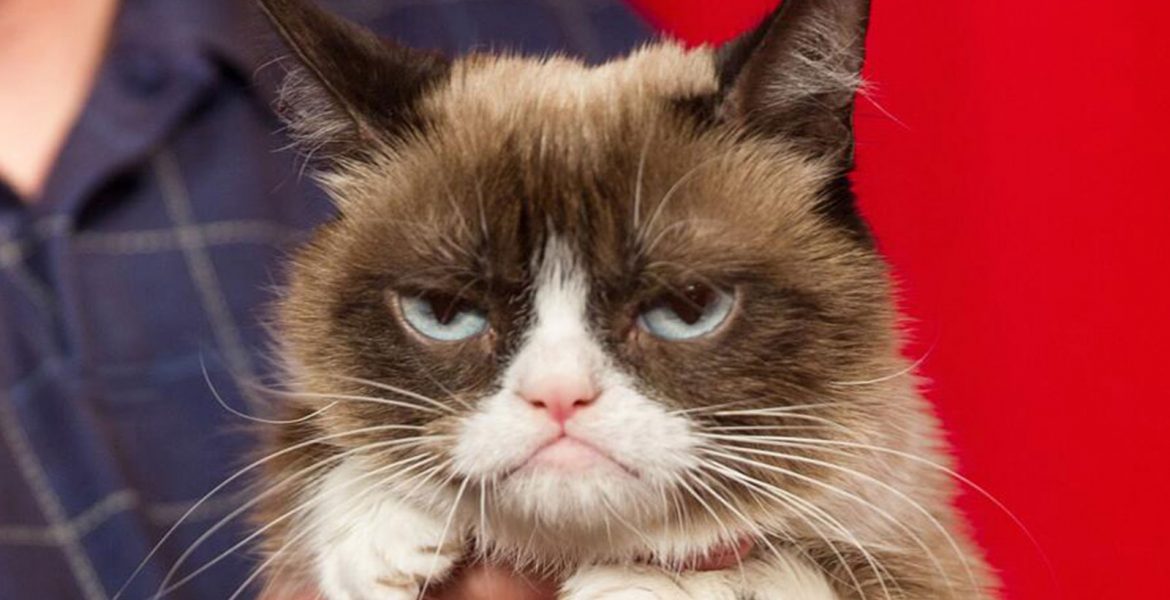When Grumpy Cat, the American cat internet celebrity famed for her permanently glum facial expression, entered the public consciousness back in 2012, she quickly became more than just a typical meme, becoming the face of countless products ranging from pillows and mugs to clothing and bags. The melancholic feline even ‘authored’ a book, The Grumpy Guide to Life, which went on to be a New York Times bestseller.
Last week it was reported that Grumpy Cat Limited, the company behind the Grumpy Cat (real name Tardar Sauce), was awarded $710,000 (£500,000) as damages for copyright and trade mark infringement by the Grenade Beverage company.
The two companies had previously reached an agreement whereby Grenade was authorised to use the Grumpy Cat brand on its Grumpy Cat Grumppuccino. However, when Grenade subsequently launched lines of coffee and T-Shirts with the Grumpy Cat brand, not covered by the original agreement, fur was ruffled, and court action taken.
So, where does the law stand in cases like this, and what can brands do to protect themselves from infringement?
It is always important for license agreements to clearly set out what permission is being granted for the use of trademarks and copyright works under the license agreement. In this case the license agreement was apparently very clear that the permissions granted were limited to the Grumppuccino product. In fact, Grenade had even asked permission of Grumpy Cat Ltd to extend the use to other lines, including the ground coffee line, and was expressly refused. It went ahead anyway so cannot have been too surprised when a law suit swiftly followed.
Grenade did try to put forward a defense of its actions, claiming that Grumpy Cat Ltd had not upheld its part of the agreement, which was to promote the Grumppuccino. This promotion included promises allegedly made that Grumpy Cat would be making waves in Hollywood which, thus far, have failed to materialize. Grumpy Cat’s team also failed to mention the Grumppuccino during TV appearances and on social media.
However, if Grenade had a genuine grievance about the failure to promote the Grumppuccino brand in accordance with the agreement then it should have acted against the company in respect of this by acting against Grumpy Cat Ltd and sought recompense in the courts. Instead it exploited Grumpy Cat Ltd.’s intellectual property (IP) without permission, and therefore opened itself up to a claim.
In cases such as this, much will rely on the original agreement and contract signed between the two parties. It is useful for such contracts to include a process for disagreements to be dealt with initially by an agreed dispute resolution procedure so that the parties can try to find a way to continue to work together and to work out their differences without the need to go to court.
In this case Grenade Beverages should certainly have given “paws” for thought before using Grumpy Cat’s trade mark and copyright beyond the scope of the original agreement, and this should act as a warning to businesses about the danger of breaching intellectual property rights. Grumpy Cat’s intellectual property rights here were clear. Whether or not the six-figure settlement will bring a smile to the miserable moggy’s face is less so.

